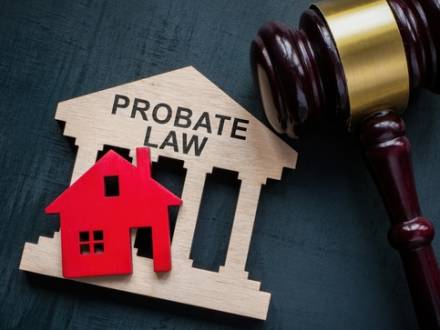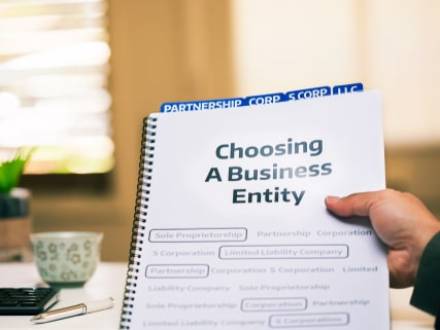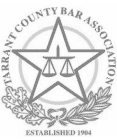Recent Blog Posts
Navigating Texas Civil Appeals
 After a court makes a final determination in a civil case, the losing party still may have the option to appeal the court’s decision to the higher court, also called the appeals court. The panel of three judges presiding over the appeals court will then review the lower court’s decision and determine whether to uphold the ruling. Appeals cases are much more complex than the initial trial, and a competent and experienced Texas civil appeals attorney is necessary to navigate appeals.
After a court makes a final determination in a civil case, the losing party still may have the option to appeal the court’s decision to the higher court, also called the appeals court. The panel of three judges presiding over the appeals court will then review the lower court’s decision and determine whether to uphold the ruling. Appeals cases are much more complex than the initial trial, and a competent and experienced Texas civil appeals attorney is necessary to navigate appeals.
The Texas Appeals Process
-
Hiring an Attorney: The appeals process necessitates the writing of legal briefs based on applying the facts of your case to the law. It is important to hire an attorney experienced and knowledgeable in appellate law and procedure.
-
The Right Court: One important piece of information that your attorney will know is the correct appeals court to hear your appeal and where your appeal must be filed. There are relevant procedural rules that determine which appeals court will hear your case. Texas has 14 intermediate appellate courts and the Texas Supreme Court.
What Types of Estates Can Bypass Probate?
 There are many factors to consider when you plan your estate. One of those considerations is called probate, a court process that your assets pass through when you die. The probate process can be lengthy and costly, which is why many estate planners use legal tools to avoid it.
There are many factors to consider when you plan your estate. One of those considerations is called probate, a court process that your assets pass through when you die. The probate process can be lengthy and costly, which is why many estate planners use legal tools to avoid it.
Certain types of estates do not need to go through the probate procedure. This article will discuss those estates, what probate is, and how to contact a Texas estate planning attorney.
What Is Probate?
Probate is a process in which a court oversees the execution of a person’s will after he or she is deceased. The aim is to settle the estate, which means the debts are paid and all assets are distributed to beneficiaries. Probate involves the following steps:
How Are Homebuyers Legally Protected in Texas?
 Residential real estate transactions can be complex, especially for homebuyers. Purchasing a house may be an exciting and important occasion, but it also comes with various challenges. Some of these stem from the fact that there are several parties involved in the transaction. Aside from the buyer, there is a seller, a lender, and sometimes a real estate broker and mortgage broker. In some cases, these parties may try to take advantage of buyers, particularly first-time homebuyers.
Residential real estate transactions can be complex, especially for homebuyers. Purchasing a house may be an exciting and important occasion, but it also comes with various challenges. Some of these stem from the fact that there are several parties involved in the transaction. Aside from the buyer, there is a seller, a lender, and sometimes a real estate broker and mortgage broker. In some cases, these parties may try to take advantage of buyers, particularly first-time homebuyers.
Whether you are buying a home as an investment or a residence, you are entitled to certain legal protections that can help safeguard your assets and shield you from exploitation. The best protection, however, is hiring a Texas residential real estate attorney who can ensure you are defended by the following legal safeguards.
Fair Housing Laws
Fair housing laws protect homebuyers from certain behaviors such as:
What Is the Difference Between an LLC and a Corporation?
 Starting a business can be an exciting undertaking. It begins with a brilliant idea, then takes shape as a team is assembled, a business plan is created, and a location is found. However, an aspect that is sometimes overlooked is the legal formation of the company. How you establish the entity is a decision that can have long-lasting consequences for the business.
Starting a business can be an exciting undertaking. It begins with a brilliant idea, then takes shape as a team is assembled, a business plan is created, and a location is found. However, an aspect that is sometimes overlooked is the legal formation of the company. How you establish the entity is a decision that can have long-lasting consequences for the business.
Two of the most popular types of entities are a limited liability company (LLC) and a corporation. Both are designed to shield their owners from legal liability so that their assets are not in jeopardy if the entity fails. However, there are significant differences between the two formations, which this article will discuss. To determine which option is best for your business, consult a Texas business formation attorney.
Ownership
One of the main differences between an LLC and a corporation is the ownership. An LLC is directly owned by one or more of its members. A corporation, on the other hand, is owned by shareholders. The shareholders appoint a board of directors, which in turn appoints the corporation’s officers.
How Do I Prove Breach of Contract in Texas?
 Contracts are a fundamental component of successful businesses. As a business owner, your relationship with partners, vendors, and employees depends in part on the contracts you sign with them. These agreements dictate the nature and terms of each relationship, binding parties to their legal framework.
Contracts are a fundamental component of successful businesses. As a business owner, your relationship with partners, vendors, and employees depends in part on the contracts you sign with them. These agreements dictate the nature and terms of each relationship, binding parties to their legal framework.
Sometimes, however, a party will not honor the terms of the contract. This can be out of ignorance or willfulness; but either way, a breach of contract can harm your business. Proving a breach of contract in Texas, however, is often a complex legal task. The best way to prove a breach of contract is to hire a Texas breach of contract attorney who will help you collect the necessary evidence and build a strong case.
Before we discuss how to prove a breach of contract, let us begin with the ingredients of a valid contract.
What Is a Valid Contract?
A legitimate contract contains the following elements:
Does the Federal Government Have a Say in Texas Water Rights?
 Water rights are now becoming highly political as the federal government seeks to control certain water rights in the state of Texas. Because supplies are limited, water is one of the state’s most valuable natural resources. In June 2024, the U.S. Supreme Court ruled 5-4 against a proposed agreement between Texas and New Mexico regarding the management of water in the Rio Grande. The agreement—which initially included Colorado—was intended to end years of water disputes between the states and fairly divide the Rio Grande basin water.
Water rights are now becoming highly political as the federal government seeks to control certain water rights in the state of Texas. Because supplies are limited, water is one of the state’s most valuable natural resources. In June 2024, the U.S. Supreme Court ruled 5-4 against a proposed agreement between Texas and New Mexico regarding the management of water in the Rio Grande. The agreement—which initially included Colorado—was intended to end years of water disputes between the states and fairly divide the Rio Grande basin water.
The water compact relies on an irrigation system managed by the Bureau of Reclamation to distribute water from the Reservoir in Elephant Butte, New Mexico, to NM, TX, and Mexico. In 2022, after dealing with these issues since the initial 1938 agreement, the two states came to an agreement that neatly sidestepped any federal interests. The case went to the Supreme Court, which said the agreement between the states would negatively impact the current Mexico international water treaty. The Supreme Court majority stated, "…we cannot now allow Texas and New Mexico to leave the United States up the river without a paddle."
Tips for Buying Commercial Property to Rent Out
 Becoming a commercial landlord is vastly different from becoming a residential landlord. Instead of renting units to families and individuals who will be living there, you will be renting space to businesses that will be using your property as its storefront or office. There are some benefits to renting out commercial spaces as opposed to residential units. Commercial landlords often enjoy greater access to their property. While residential landlords must generally give notice before entering a unit, if the company renting your commercial space is open to the public, you can simply walk in during normal business hours. However, there are also risks to being a commercial landlord. If you are purchasing commercial property to rent out, you must be represented by an experienced Cleburne, TX commercial real estate lawyer.
Becoming a commercial landlord is vastly different from becoming a residential landlord. Instead of renting units to families and individuals who will be living there, you will be renting space to businesses that will be using your property as its storefront or office. There are some benefits to renting out commercial spaces as opposed to residential units. Commercial landlords often enjoy greater access to their property. While residential landlords must generally give notice before entering a unit, if the company renting your commercial space is open to the public, you can simply walk in during normal business hours. However, there are also risks to being a commercial landlord. If you are purchasing commercial property to rent out, you must be represented by an experienced Cleburne, TX commercial real estate lawyer.
Can A Will Be Contested No Matter What?
 When a loved one passes away, the distribution of his or her assets according to the will left behind may not always align with the expectations or wishes of the heirs. Understandably, this can lead to anger and dissatisfaction, which can rapidly lead to disputes. However, a will cannot be contested just because the heirs are unhappy. There must be a legal basis for such a challenge in Texas.
When a loved one passes away, the distribution of his or her assets according to the will left behind may not always align with the expectations or wishes of the heirs. Understandably, this can lead to anger and dissatisfaction, which can rapidly lead to disputes. However, a will cannot be contested just because the heirs are unhappy. There must be a legal basis for such a challenge in Texas.
Lack of testamentary capacity and undue influence are two legally sound and valid examples of when a will can be contested. If you believe you have the legal basis to contest a will or are wondering whether you have the legal basis, contact a lawyer.
What to Know About Lack of Testamentary Capacity
One of the most common reasons for contesting a will is the claim that the testator, or the person who created the will, lacked testamentary capacity at the time the will was made. Testamentary capacity is a big word that refers to the mental fitness of the person creating the will and whether the person understands the implications of his or her decisions regarding the division of the estate.
Types of Damages for Breach of Contract
 Businesses and individuals alike rely on others to uphold their contracts every day. When another party you do business with materially breaches a contract, it can cause significant financial harm to your company. If a supplier breaches its contract, your business might not have the materials or supplies it needs to keep operating until the breach is remedied. If a client breaches a contract by failing to make scheduled payments for goods or services you have already provided, your business might be left without the funds it needs to pay expenses. There are several different types of damages you might be entitled to if another company or a client has failed to uphold the terms of its contract. A Hill County, TX breach of contract lawyer can help determine what rights you have in this situation.
Businesses and individuals alike rely on others to uphold their contracts every day. When another party you do business with materially breaches a contract, it can cause significant financial harm to your company. If a supplier breaches its contract, your business might not have the materials or supplies it needs to keep operating until the breach is remedied. If a client breaches a contract by failing to make scheduled payments for goods or services you have already provided, your business might be left without the funds it needs to pay expenses. There are several different types of damages you might be entitled to if another company or a client has failed to uphold the terms of its contract. A Hill County, TX breach of contract lawyer can help determine what rights you have in this situation.
Compensation and Remedies for a Material Breach of Contract
There are a few different ways the party in breach of the contract can be ordered to remedy its failure to uphold its end of the bargain. Some involve paying financial compensation, while others involve more direct means of coming into compliance. Possible legal remedies include:
Understanding Leaseback Agreements
 Whether you are planning to purchase residential or commercial real estate, there is a chance that the seller will request what is called a leaseback agreement. A leaseback agreement allows the seller to continue to occupy the property for a brief period of time after closing in exchange for paying rent to the buyer. There are many reasons sellers request these agreements. For example, the seller might find out that there will be a delay in when his new home or business location will be ready to move into, or the seller might have difficulty getting his belongings cleared out before closing. Although leaseback agreements are common, they are risky for the buyer. Always consult a Cleburne, TX real estate lawyer before agreeing to a leaseback.
Whether you are planning to purchase residential or commercial real estate, there is a chance that the seller will request what is called a leaseback agreement. A leaseback agreement allows the seller to continue to occupy the property for a brief period of time after closing in exchange for paying rent to the buyer. There are many reasons sellers request these agreements. For example, the seller might find out that there will be a delay in when his new home or business location will be ready to move into, or the seller might have difficulty getting his belongings cleared out before closing. Although leaseback agreements are common, they are risky for the buyer. Always consult a Cleburne, TX real estate lawyer before agreeing to a leaseback.
The Risks of a Leaseback Agreement
When you enter into a leaseback agreement, you legally become the seller’s landlord as soon as you close on the property. Some of the risks involved include:
We're Here When You're Ready
To set up a consultation with our attorneys and get the legal help you need, please call 817-645-1717 or fill out the form below:
The use of the Internet or this form for communication with the firm or any individual member of the firm does not establish an attorney-client relationship. Confidential or time-sensitive information should not be sent through this form.
I have read and understand the Disclaimer and Privacy Policy.

 817-645-1717
817-645-1717









